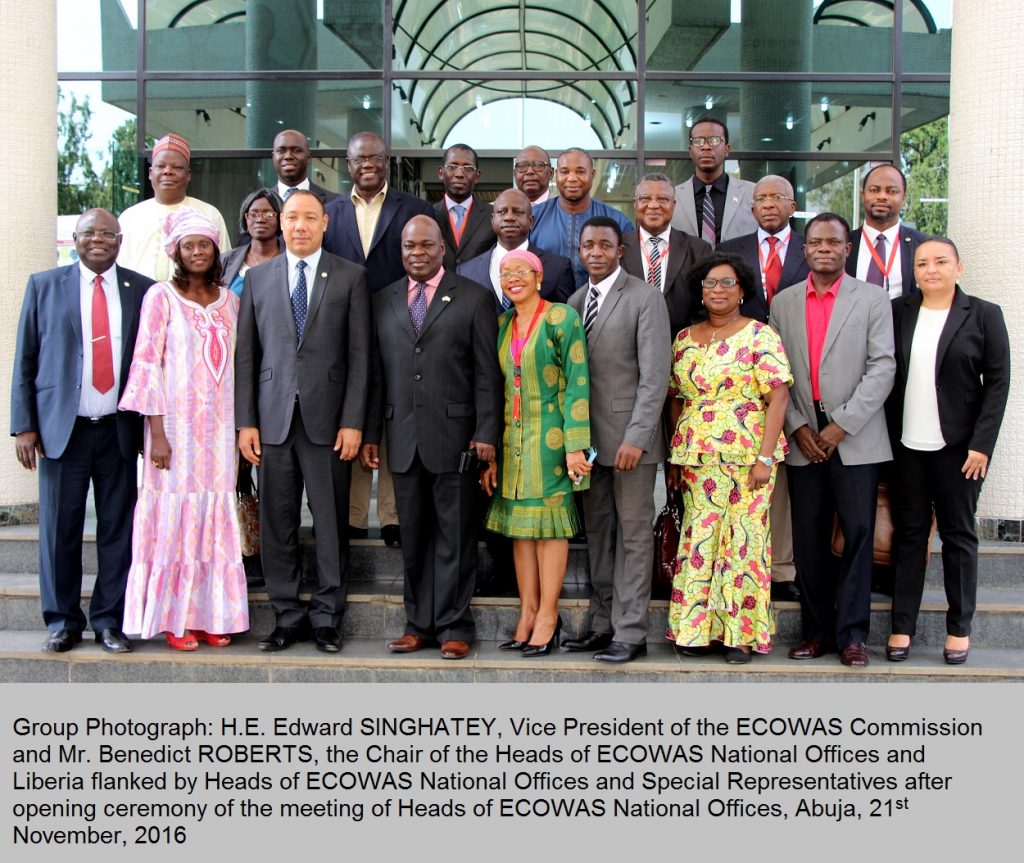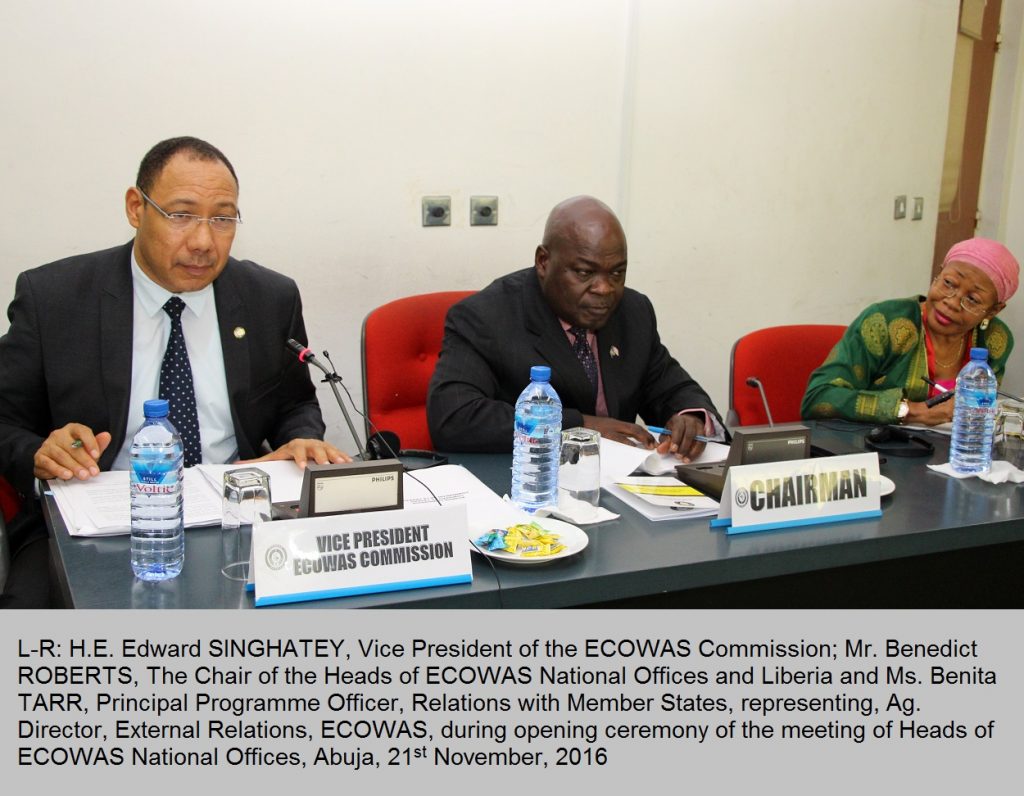 Abuja, 22nd November 2016 Abuja, 22nd November 2016
The ECOWAS Heads of National Offices have adopted a set of tools for strengthening the implementation of ECOWAS Programmes in the Member States.
The monitoring and evaluation of ECOWAS programmes is imperative for the tracking and effective implementation integration endevours in the region.
Also adopted is the framework for the reporting of funds remitted by the Commission to Member States for ECOWAS programmes.
The interface between leading Officials of the Commission and Heads of ECOWAS National Offices provides a valuable platform for the sharing of experiences including the robust discussions of ECOWAS regional programmes that are being implemented in Member States.
Among others, the Officials also appraised the level of ownership and implementation of the Operational Manual launched in April 2015 by Member States in Accra, Ghana.
Welcoming delegates to the meeting, the Vice President of the ECOWAS Commission His Excellency Edward Singhatey noted that the 2016 meeting of the heads of National Offices was holding at an important time when the ECOWAS Institutions are in the process of reviewing and putting in place its institutional reform process to enhance their efficiency in the achievement regional integration programmes.
According to Vice President Singhatey, “the National Offices are a key partner to the ECOWAS Commission for the deepening of the regional integration process and the attainment of our Vision 2020”
He noted further that it is in order to address the challenges faced by the National Offices in carrying out their responsibilities that an Operational Manual for ECOWAS National Units was developed, launched and disseminated.
The Manual, among others, enhances ownership-taking of regional integration programmes by Member States, just as Departments of the Commission and other ECOWAS Institutions are meant to use it as an information and working tool to guide their interaction with the Member State through the Ministry in charge of ECOWAS affairs.
By addressing the recommendations already made to enhance the capacities of the National Offices and their collaboration with the Commission, ECOWAS is expected to have an improved communication link with Member States while developing a framework for proper monitoring and evaluation of Community Programmes 
Earlier, the Chair of session and Head of National Office of Liberia, Mr. Benedict Roberts stressed the need for quality and productive interaction between the Commission and the National Offices noting that it has a bearing on the implementation of ECOWAS programmes and its ownership by citizens of West Africa.
“You all have versed experiences that we can learn from” He added while addressing the Officials on their capability of meeting the tasks at hand
The Technical Adviser to the President on Institutional Reform on behalf of the Vice President presented a short briefing on the ongoing Institutional Reform which aimed at improving ECOWAS efficiency and effectiveness and to maximise the 2007 transformation that earned it supranational powers and to examine the working relationship between Commission and its organs. She informed the meeting that the ECOWAS Commission is developing a communication strategy to sensitise all the ECOWAS Institutions beginning the first quarter in 2017.
Various presentations were made on monitoring and evaluation, development of guidelines for the implementation of ECOWAS programmes in the Member States as well as Reporting of funds procedures which sets out the roles of the ECOWAS National Offices, Structure for Collecting ECOWAS Levy, Operations for Collecting Community Levy, the need to institutionalize the National Consultative Committee and the Community Levy Coordinating Committee, payment of 4.5% to National Offices, Reporting and Accountability etc
The meeting also featured a presentation on Standardized reporting format of ECOWAS programmes on the ECOWAS Website which mainly focused on Statistics on the web and social media users.
The recommendations of the Heads of National Offices Meetings also help the Commission in meeting some of its obligations. |





